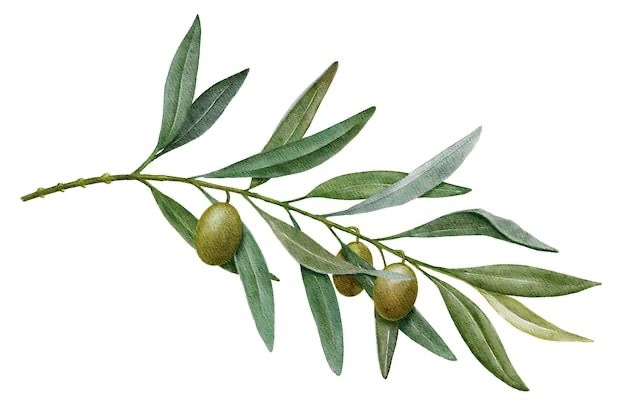A child's poem.
Experiments with poems.
A mother and daughter got off the train from the country. The daughter is 3 years and 8 months old. Deeply impressed by the train ride, the girl asks her mother:
“Is there a toilet on the train?”
“No,” her mother replies.
In Russian, this dialogue looks like this:
“В электричке есть туалет?”
“Нет”.
A girl hears the harmony of words:
туалет [too-a-lyét] — нет [nyét].
And instantly composes a poem based entirely on the play of these harmonies.
Here is the text.
The rhymes are highlighted in bold. Note also that the mother said “нет,” but she could have said “нету.” The words нет [nyét] and нету [nyé-too] are equivalent.

В электричке есть туалет? —
Нет.
Нету туалета —
бегает газета.
А газеты нету —
бегает портрету.
А портреты нету —
бегает домету.
А дометы нету —
бегает лампатету.
А лампатету нету —
бегает котлету.
А котлету нету —
бегает калеку.
Summer 1973.
![]()
Pay attention to how the rhyme embellishes the poem. The text seems to sparkle with rhyme. Have you ever seen a more elegant poem?..
No doubt you are now eager to find out what these verses are about. Let's get down to business and follow the flight of a child's unbridled imagination.
Note: The poem consists of seven stanzas; the numbers indicate the number of the stanza.
The second line of all verses (except the first) begins with the verb бегает - «runs». Let's clarify the meaning of the Russian verb with examples: a runner runs, a dog runs, a hare runs.
Let's look at the second stanza.
Нету туалета —
бегает газета.
There is no toilet — the newspaper runs.
Why does the newspaper run? Because there is no toilet.
How can a newspaper run? Can it run? The girl does not ask herself such questions. She needs the newspaper for its euphony, for its rhyme.
Do not rush to reproach the young poetess for her lack of meaning. It will get even more wonderful.
Let's see what the next, third verse is about.
А газеты нету —
бегает портрету.
If there is no newspaper, the portrait runs.
This translation is not accurate. The girl does not say портрет “portrait” but портрету [par-tryé-too]. She pronounces the word incorrectly.
But if the word is said correctly, there will be no rhyme!
The stanza began with the word “a” (if). Now all stanzas will begin with the word “a.”
How does it sound? We hear the sound [a] in the word “ado.”
Here is the beginning of the next verse, the fourth.
А портреты нету…
If there is no portrait...
Here again, the translation is inaccurate.
In the poem, the word портреты [par-tryé-ti] (-ti- should be pronounced as in the word ti-ller).
But it should be портрета [par-tryé-tа].
Why did our poetess distort the word here too? Let's look at the beginning of the third and fourth stanzas.
3. А газеты нету…
4. А портреты нету…
The words газеты [ga-zyé-ti] and портреты [par-tryé-ti] are consonant.
And the beginnings of the stanzas turn out to be consonant, because the only difference between them is in these words. And the beginnings of the verses sound as if they were in a song.
Let's look at the fourth stanza in its entirety.
А портреты нету —
бегает домету.
The word домету does not exist in the Russian language.
In her rush to find rhymes, the young poetess did not have enough time to find a suitable word.
Let's carefully proceed to the fifth stanza. Here is its beginning.
А дометы нету…
The beginning of this stanza is consonant with the beginning of the two previous stanzas:
3. А газеты нету…
4. А портреты нету…
5. А дометы нету…
Why are they consonant? Because the words are consonant:
газеты [ga-zyé-ti],
портреты [par-tryé-ti],
дометы [da-myé-ti].
Let's read the fifth stanza in its entirety.
А дометы нету —
бегает лампатету.

Let’s remember those who run.
газета
портрету
домету
How has it been until now? Everyone who runs consists of three syllables. Let’s check it out.
газета [ga-zyé-ta]
портрету [par-tryé-too]
домету [da-myé-too]
But suddenly, some kind of monster joins this company. This monster - лампатету - consists of four syllables: лампатету [lam-pa-tyé-too].
This monster destroys the measured flow of the poem.
The next stanza begins with a mention of this clumsy monster.
А лампатету нету —
бегает котлету.
Let's compare the beginnings of the stanzas:
3. А газеты…
4. А портреты…
5. А дометы…
6. А лампатету…
The beginning of the sixth stanza does not harmonize with the beginnings of the previous stanzas. But within this beginning there is harmony:
6. …лампатету нету…
This harmony draws our attention to the rhyme in the stanza:
А лампатету нету —
бегает котлету.
The second half of the stanza does not disrupt the flow of the poem:
3. бегает портрету.
4. бегает домету.
6. бегает котлету.
Let's look at the seventh, final stanza.
А котлету нету —
бегает калеку.
In the first part of the stanza, we see the harmony of the words “котлету нету.” This harmony reinforces the rhyme of the verse:
А котлету нету —
бегает калеку.
The words “котлету” and “калеку” exist in the Russian language. But here they are out of place, so there is no need to explain them.
Here they are similar to the invented words “домету” and “лампатету”. The meaning of these words was also absent for the child.

So, we have become acquainted with the poetic creation of a young child. We have touched his soul. We have experienced a few minutes of his childish joy. And our feeling of this joy is not yet over.
We cannot read this poem in its original language.
How many seconds do you think it would take to read this poem?.. That is how long it took for the child to create it. And it burst forth at the moment of its creation.
Unexpectedly for the author himself.
And it burst out not to surprise anyone.
++++++++++++++